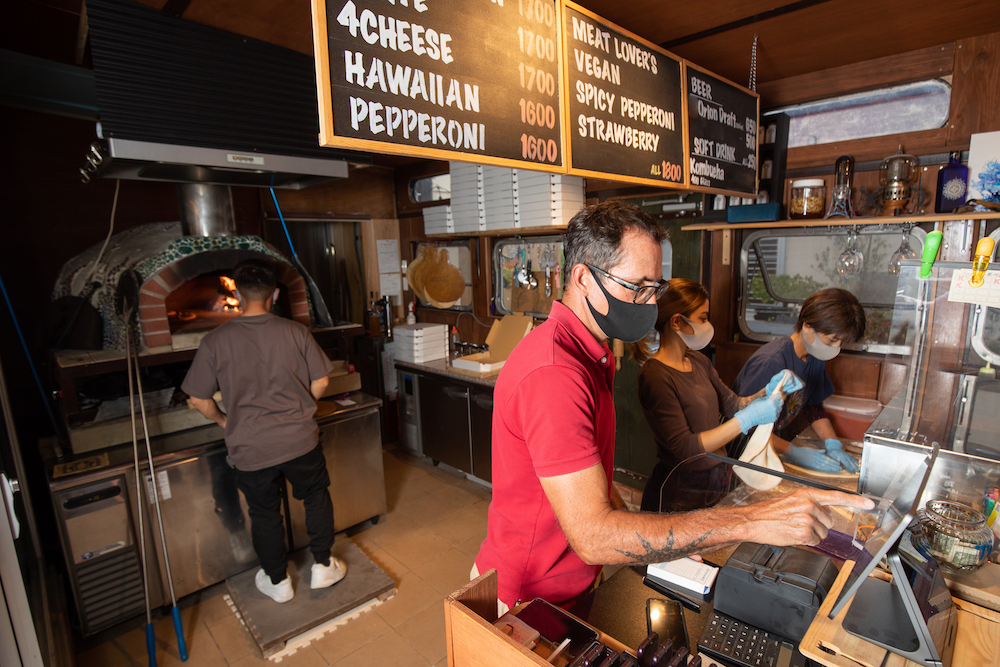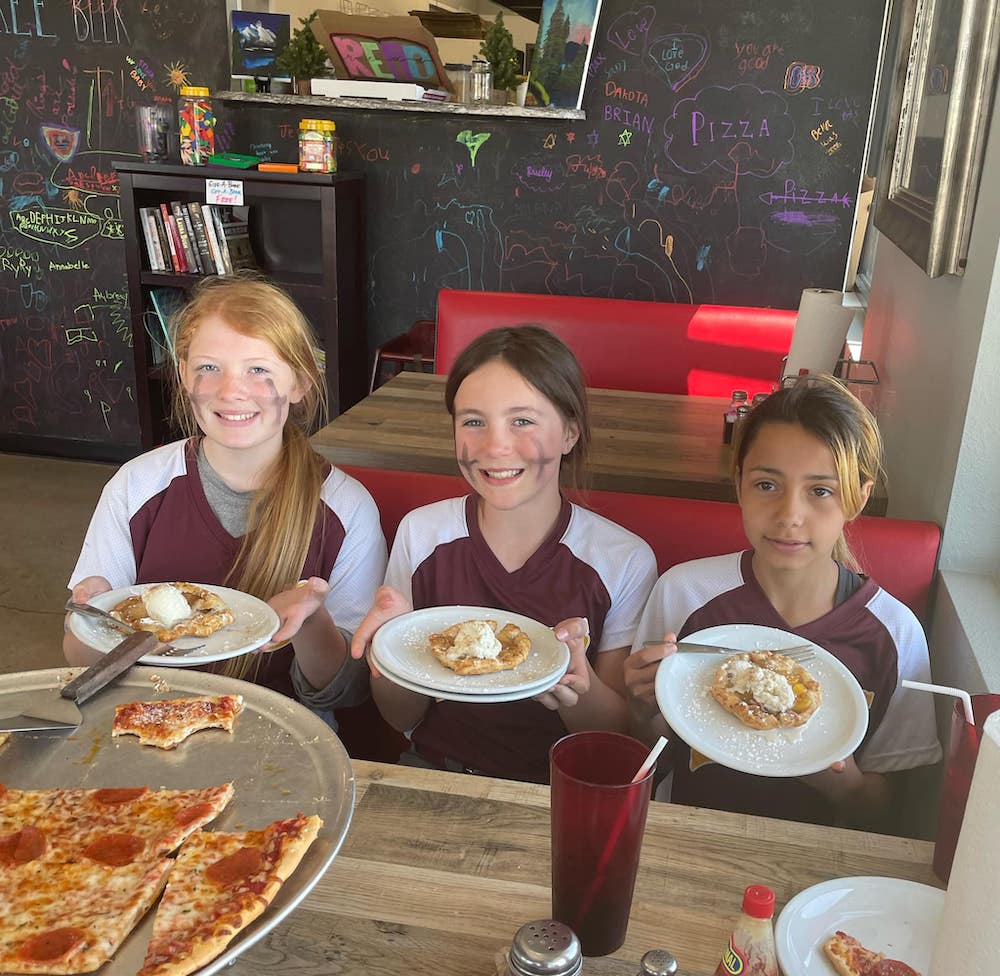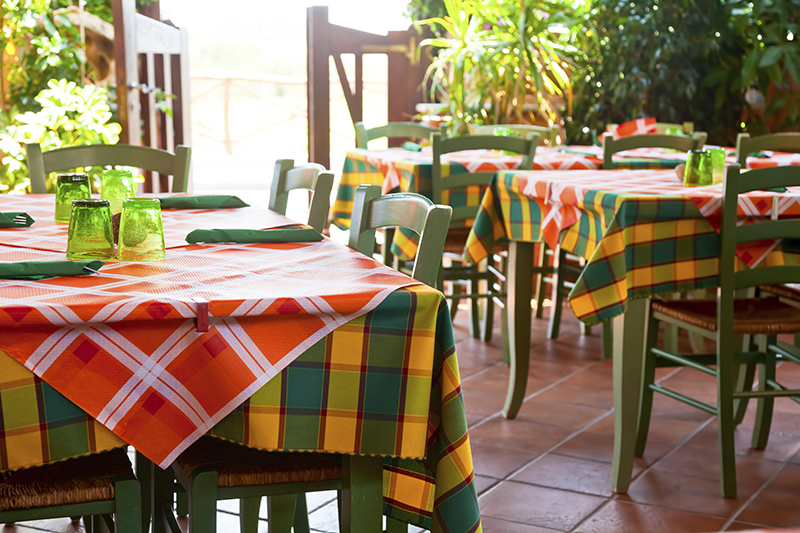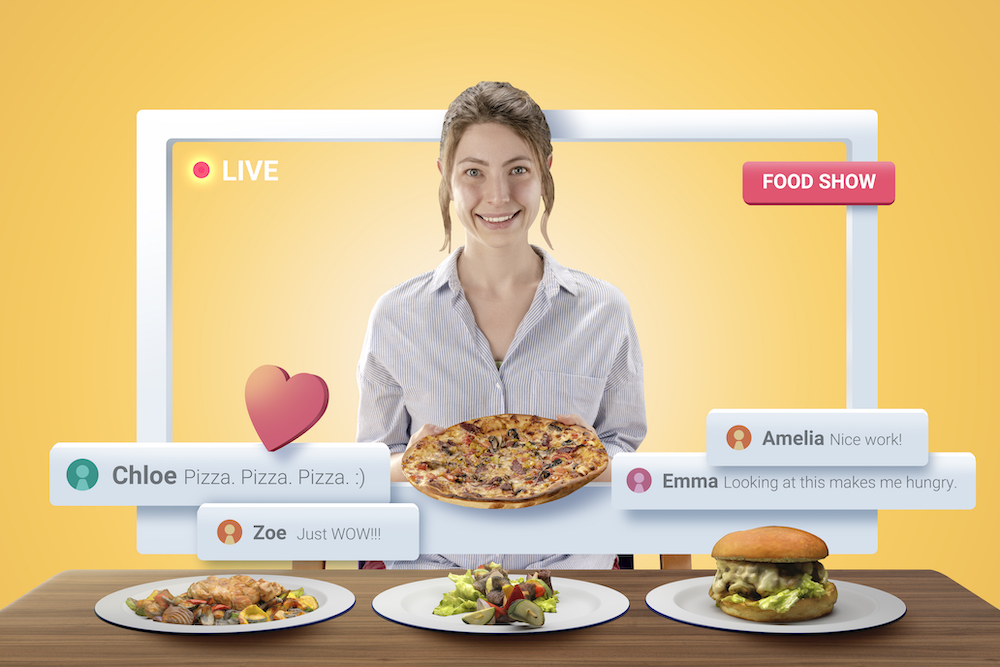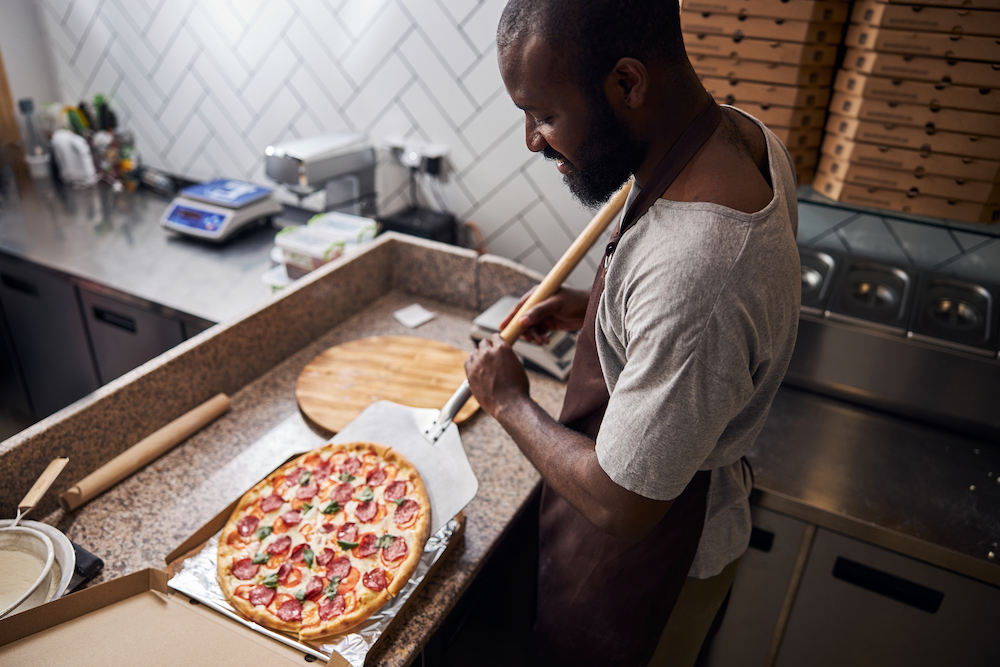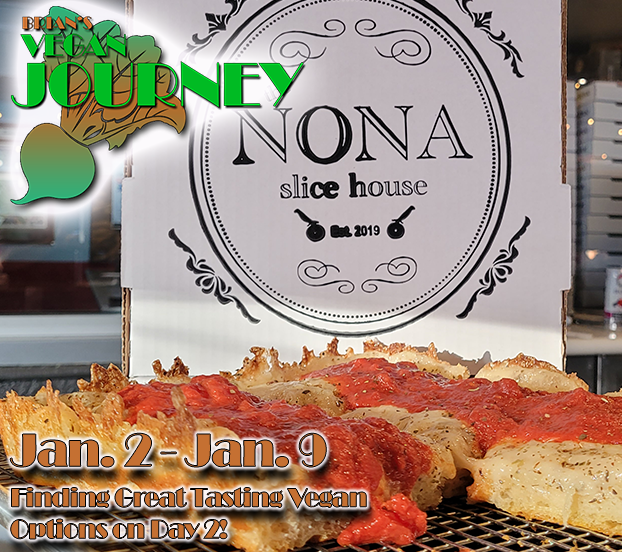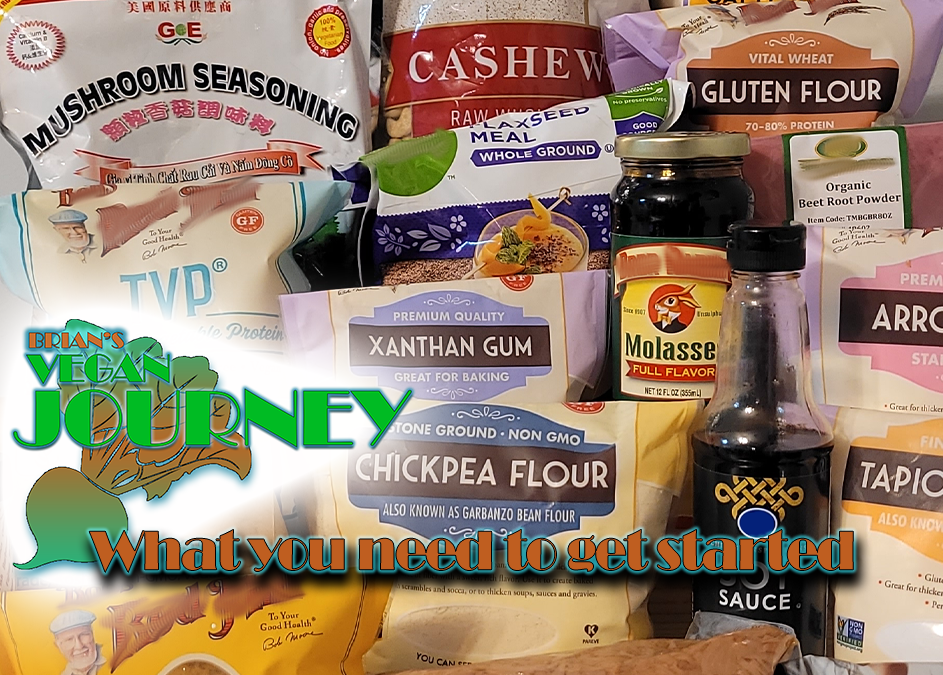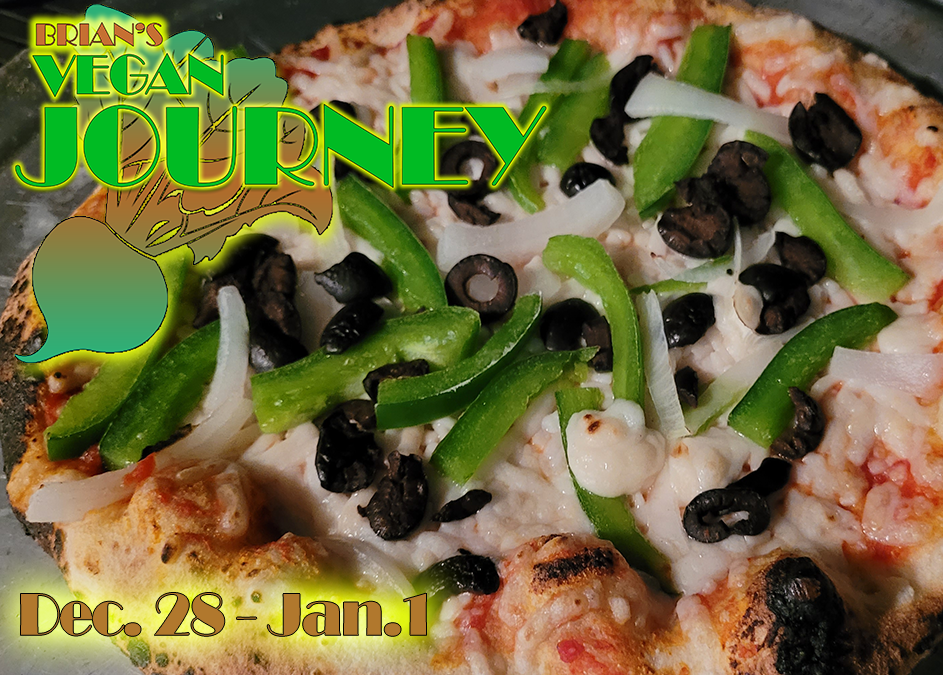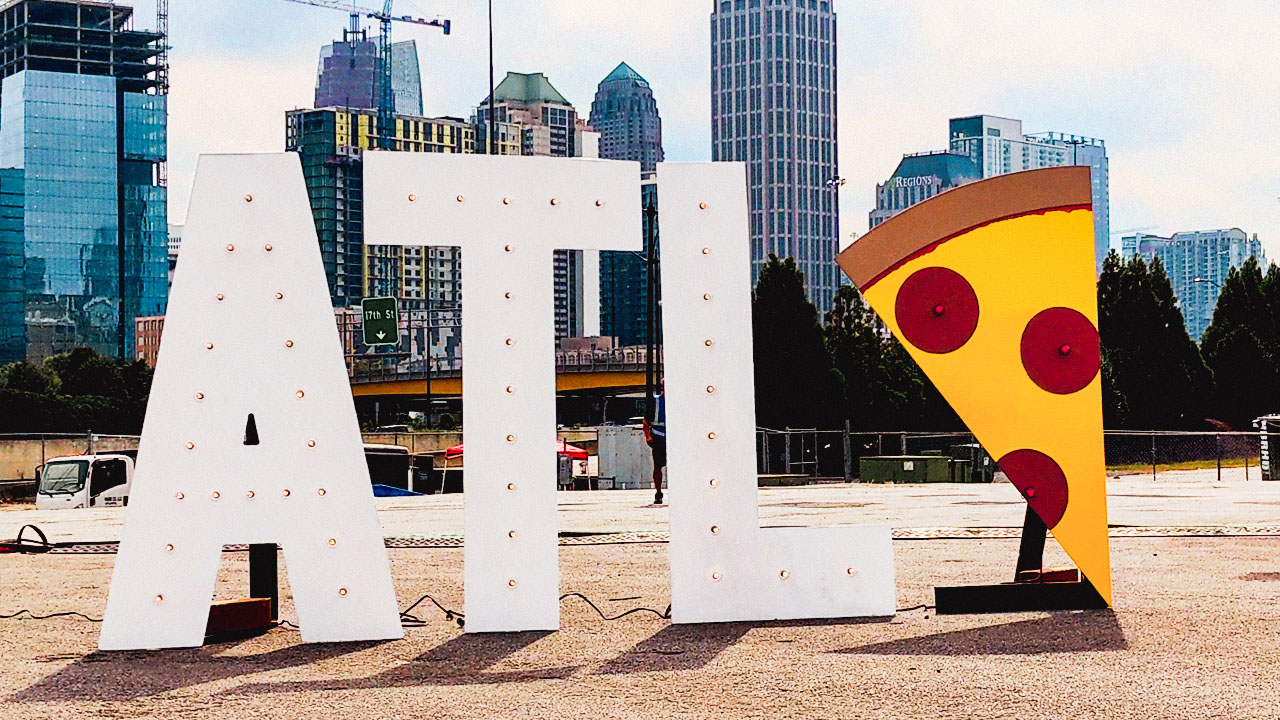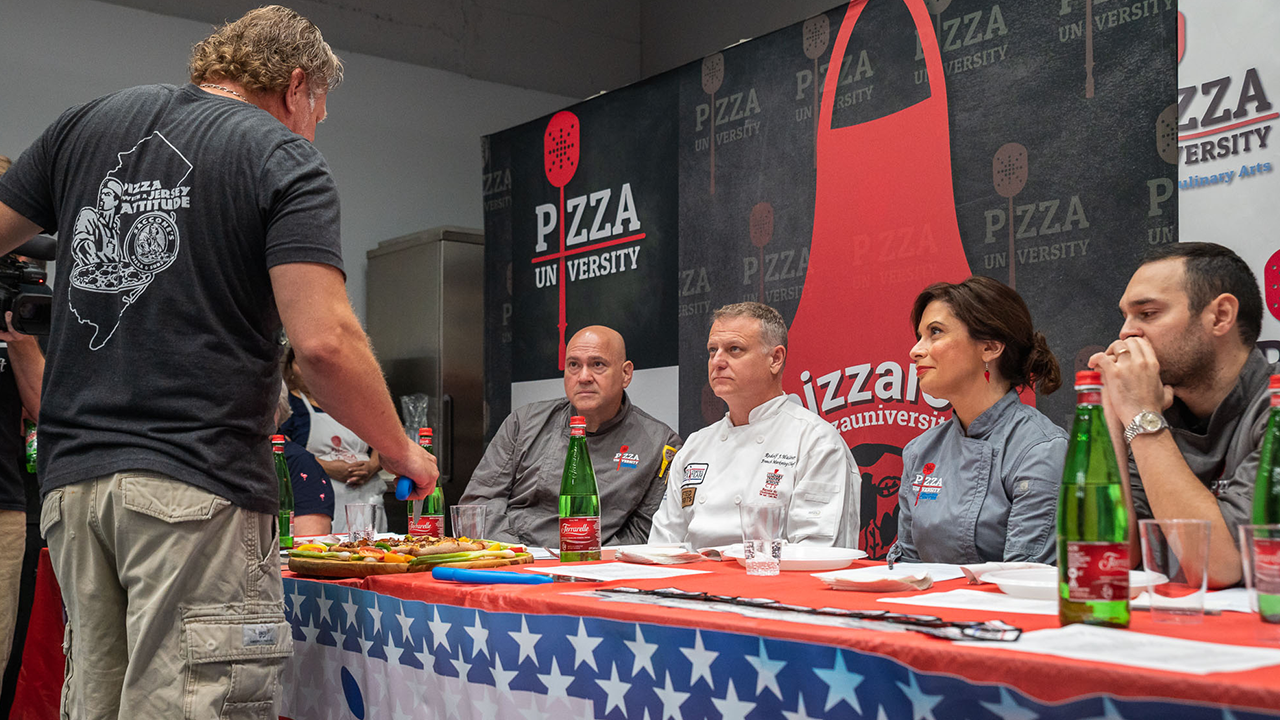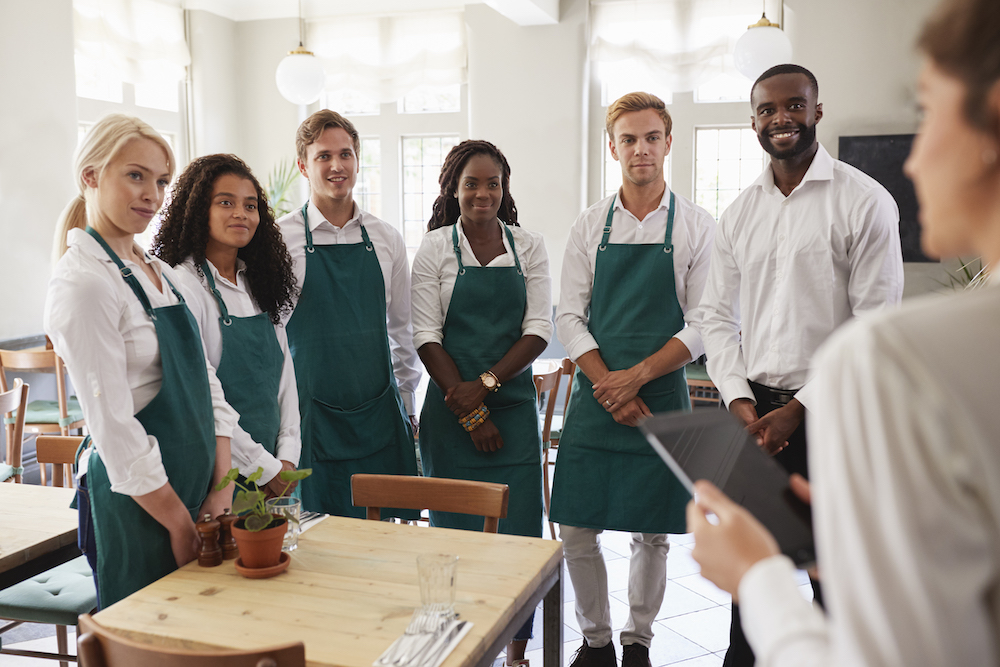Dojo Pizza in St. Louis offers two fun activities for kids—karate and pizza—all at one stop. And then there’s basketball, dance classes, even a chance to make extra money and tips. In other words, this is not your ordinary pizzeria. According to Dojo Pizza founder Loren Copp, the non-profit concept helps keep kids off the streets while teaching them new skills that can better their lives. Copp recently shared the Dojo Pizza story with PMQ.
PMQ: You began as a karate dojo a year ago. How did that lead you into making pizza?
Copp: I have been in karate 30 years now and have been teaching off and on for the past 25 years. My karate group purchased an old church building and school a little over two years ago, and I put a karate school (St. Louis School of Self Defense) in the gym. We also run a school lunch program for the small private school that rents from us in the upper part of the building. When I started the inner city karate classes, I would charge a low fee, but it was still hard for a lot of the kids to come up with the money. I started letting kids come in and shoot basketball, and I just couldn’t say no to kids who wanted to train [in karate] but didn’t have the money. There are a lot of good people and kids in the inner city—they just need a helping hand and a safe place to hang out. I started providing that place. Along the same timeline, a family that I had helped over the years had a pizza kitchen in storage. They approached me and asked if we could use it.
At that point in my life, I had eaten a lot of pizza, but I’d never thought about running a pizza shop. Once I installed the oven, I started working on pizza ideas. I was like a kid in a candy factory. I have always been known for my cooking, both for the kids at the school and for Christmas and Thanksgiving meals for homeless. As I started working on the pizza concept, I knew that I wanted to do something different. I came up with a sauce for the pizza that people just loved, and I would hear, “I love the sauce! It has a…kick!” As people would come in to get a pizza, I would be making it there while wearing my karate uniform, so [that’s how] the name came into existence: Dojo Pizza.
PMQ: So now Dojo Pizza is part of the Ma-Ji Christian Karate Association (MRCKA), which is a non-profit youth center. How do the pizza store and the karate classes tie in together?
Copp: We started doing fundraisers with the pizzas, pre-selling them for both the private school and local public schools. A portion of the money would go back to the participating school to help them out, and the rest of the money went to helping kids with karate and our own expenses.
Last summer we started doing an Open Mic night for the community. People would come in to sing or to show off some form of talent. The kids that hung around the youth center worked as servers. They felt good when they could say, “I have a job.” People would tip them, and you could just see the change in their lives. I knew something more had to be done. So, with the help of an awesome friend, I purchased the supplies for tables and went to work. Lorraine Bala, her husband Calvin Bryant, and our kids—Ashlee Copp, Kathryn Copp and Nashala Acres—and some of the local kids started building tables and cutting down the old church benches. We turned the old church into a restaurant. This in itself was an awesome event; kids and parents felt like they were doing something positive.
We now offer evening hours and Open Mic nights for the community. All karate classes are free! We also work with a dance group, Team 2.0, that gives dance classes out of our place and hosts our dance nights in the Dojo on Friday and Saturday nights. Kids and families come down to the Dojo, order pizza and drinks, and dance until 11 p.m. It makes for a great time!
And the pizza place is our continual fundraiser. We still get some outside donations and can use all the help we can get, because the more we grow, the more we can help change this part of the world we are in.
PMQ: Working in the inner city brings its share of challenges, doesn’t it?
Copp: I know the concept is different, and a lot of events led us to this place. My truck was stolen. I was shot at through the front door of our building. Young kids that I work with would get hassled by gang kids on the streets. They even tried to rape one young lady. I would see people dealing drugs in front of me. Two of my karate students saw a drug buy go down—a dealer sold a brick of weed to a 12-year-old girl. They say the dealer asked the girl’s age and she lied and said she was 14. To that, he replied, “Good, because I don’t sell to kids under 12.”
Other kids were afraid to go out on the street; they were getting jumped and held up with guns. The karate school and youth center became a place of safety and shelter, and the pizza has become the way to pay for it. I was once told by [a fellow karate instructor] that I shouldn’t give it away for free—it needs to come at a price so the students will recognize its value. I asked my sensei, Eddie Bethea, about this, and his answer has stuck with me ever since. He said, “Mr. Copp, your kids do pay—not with money to you, but they lay down a lifestyle of gangs, drugs and bad living, and that is payment enough.”
PMQ: How did you develop your recipes?
Copp: I make the pizza myself. I also have trained different students on how to make them when we are busy. I am the only one who knows the recipe for the sauce, though. I just started coming up with ideas—some worked, some didn’t. In the end, we have some awesome pizza, salads, wings, and an awesome iced tea.
PMQ: What are some of your most popular pizzas?
Copp: People love our Buffalo chicken pizza. We also offer BBQ pizza, and our Dojo classic pizza sauce is very popular.
PMQ: How has the community responded to this concept?
Copp: The community has embraced the concept. They like the change that has been made in the community because of what we do, and they love the fact that we retained the historical concept of the old church, both inside and out.
PMQ: How do the kids respond to it?
Copp: Kids love it. Our numbers go up and down, depending on sports and weather, but they love that we are here. Many kids just come to hang out. One young boy and his friends found themselves locked out of their house once and were so scared. So they came up to my place to hang out; they were hungry, too, so we were able to help feed them as well.
PMQ: Do you just sell pizza when the karate classes are going on, or are there regular business hours?
Copp: We now sell pizza just like a regular pizza shop. We even offer delivery. I have helpers and volunteers who run things while I teach classes.
PMQ: This is a non-profit. So, aside from ordering your pizza, how can people support Dojo Pizza and your youth center?
Copp: We always accept donations and could definitely use them. We are a 501c3 non-profit, and we can always use the funds. The more donations we get, the more we can help these kids. Additionally, you can sponsor a kid for karate or buy karate sparring gear or uniforms for the kids. I also have a lot of kids that come in wanting pizza, but they can’t afford it. Of course, we give a lot of pizza away—it’s just hard to say no. So people can call in and donate pizzas for kids that can’t afford them.
But the number-one way to help us out is to purchase our pizzas. When people purchase our pizzas, they are not only getting an awesome pizza; they are giving to the needy and providing those people with a place and an opportunity to work and earn money.
PMQ: How many kids have gotten involved?
Copp: I have had many students over the years; I don’t even think I could put a number to all of the kids and families we have helped. Even if a kid is not in the karate classes, they might take the dance classes that Team 2.0 teaches. We are a multi-directional not-for-profit with one goal: helping to raise up the next generation.
To learn more, visit the website at www.dojopizza.com or follow on Facebook https://www.facebook.com/MrckasDojoPizza.




